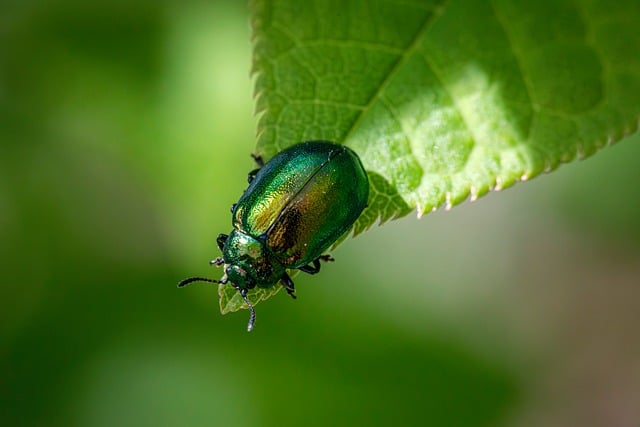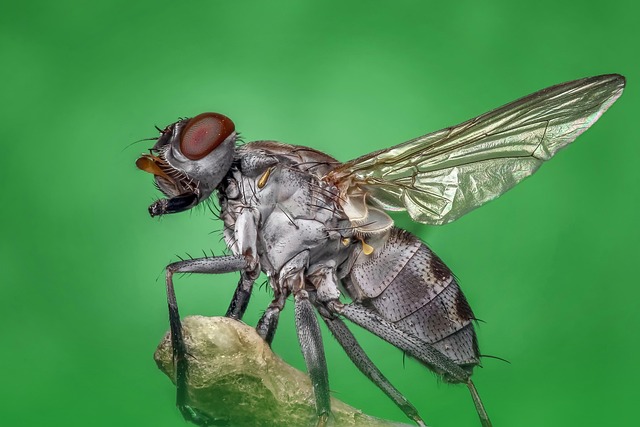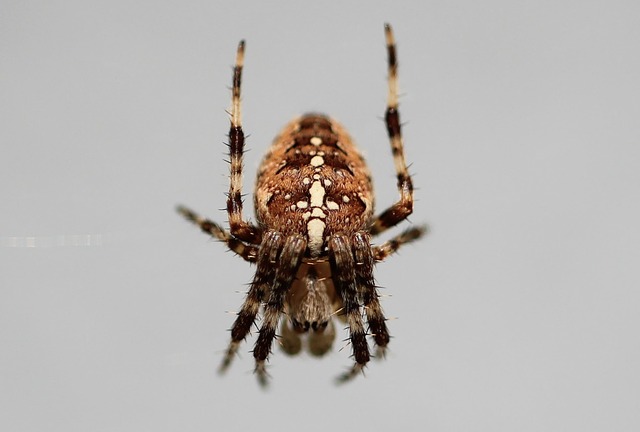The West Nile Virus (WNV) poses a significant threat in Sheridan due to mosquito bites, with birds as natural hosts and mosquitoes transmitting the virus. Effective residential mosquito control is crucial to prevent WNV transmission. Strategies include eliminating standing water, maintaining outdoor areas, considering professional pest services, using natural repellents, and introducing beneficial insects. Implementing these methods significantly reduces mosquito populations and minimizes residents' risk of WNV while fostering a healthier environment in Sheridan.
In Sheridan, residential areas face a significant challenge with mosquito-borne diseases like West Nile Virus. This article delves into effective strategies for lawn pest suppression, focusing on residential mosquito control. We explore safe and sustainable practices to mitigate the risk of West Nile Virus transmission. By understanding the impact of mosquitoes and implementing proven control methods, homeowners can create healthier outdoor spaces. Discover practical tips tailored to Sheridan’s unique environmental considerations for a comprehensive approach to mosquito management.
- Understanding West Nile Virus and Its Impact on Residential Areas
- Effective Mosquito Control Methods for Lawn Suppression
- Implementing Safe and Sustainable Pest Management Practices in Sheridan
Understanding West Nile Virus and Its Impact on Residential Areas

The West Nile Virus (WNV) is a significant concern for residents in Sheridan and across residential areas nationwide. Transmitted primarily through mosquito bites, WNV can have severe health effects on humans, animals, and birds. While birds are often the natural hosts, mosquitoes act as vectors, picking up the virus from infected birds and passing it on to other mammals during feeding. In urban settings, this poses a unique challenge due to the dense population of mosquitoes breeding sites close to human habitats.
Implementing effective residential mosquito control strategies is crucial in Sheridan to prevent WNV transmission. This includes eliminating standing water where mosquitoes breed, regularly maintaining outdoor areas free from debris that can collect water, and considering professional pest suppression services. Targeted treatments and proactive measures help reduce mosquito populations, thereby minimizing the risk of WNV exposure for residents and pets. With proper care, Sheridan communities can enjoy a more comfortable environment while also safeguarding public health.
Effective Mosquito Control Methods for Lawn Suppression

In the pursuit of a pest-free lawn, especially in areas like Sheridan where West Nile Virus poses a risk, effective mosquito control methods are paramount. Residential properties can employ a multi-faceted approach to prevent and suppress mosquito populations. Firstly, eliminating standing water is crucial as mosquitoes breed in these stagnant sites. Residents should regularly empty water from flower pots, birdbaths, and other containers, ensuring no suitable breeding grounds exist. Additionally, maintaining mowed grass and trimming foliage reduces hiding spots for adult mosquitoes.
Beyond these measures, there are various treatments available. Natural repellents like citronella plants or oil of lemon eucalyptus can be used to deter mosquitoes from entering outdoor living spaces. Professional services also offer residual insecticides that target mosquito resting areas, providing longer-lasting protection. In extreme cases, ultra-low volume (ULV) spraying, which releases fine mist containing insecticide, can effectively reduce mosquito populations over a wide area. These methods, when implemented correctly, can significantly decrease the risk of West Nile Virus transmission while enjoying a peaceful, pest-free lawn in Sheridan.
Implementing Safe and Sustainable Pest Management Practices in Sheridan

In Sheridan, implementing safe and sustainable pest management practices is paramount, especially in residential areas, given the persistent concern over mosquito-borne diseases like West Nile Virus. A comprehensive approach that combines various eco-friendly techniques can significantly reduce mosquito populations while minimizing environmental impact. One effective strategy for residential mosquito control involves eliminating standing water sources where mosquitoes breed. This includes regular cleaning of gutters, emptying flower pots, and repairing leaky pipes or containers that may collect water.
Additionally, the use of natural repellents and beneficial insects can play a crucial role in Sheridan’s pest suppression efforts. For instance, planting citronella, lavender, or marigolds around homes can help deter mosquitoes naturally. Introducing predators like dragonflies and ladybugs also contributes to balancing the ecosystem by feeding on mosquito larvae. These sustainable practices not only protect residents from West Nile Virus but also promote a healthier, more harmonious environment in Sheridan.
In conclusion, implementing effective residential mosquito control methods is vital for preventing the spread of West Nile Virus in Sheridan. By adopting safe and sustainable pest management practices, residents can enjoy a healthier, more peaceful environment while mitigating the risks associated with this harmful disease. Targeted lawn suppression strategies are key to creating a buffer zone against mosquito-borne illnesses, ensuring a safer community for all.
